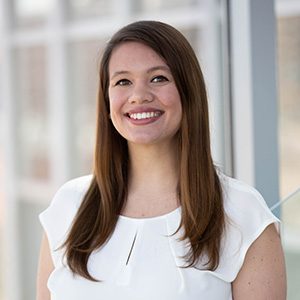After being reelected as Metropolitan State University of Denver Faculty Senate president, Liz Goodnick, Ph.D., associate professor of Philosophy, heads into her second term ready to roll.
Goodnick hit her 10-year anniversary at MSU Denver on Aug. 1 and has worked with the Faculty Senate through the entirety of her Roadrunner career. As an associate professor of Philosophy, she focuses her research on the history of European philosophy from roughly 1600-1800 (the early modern period), with special interest in David Hume and women philosophers, especially Margaret Cavendish and Emilie du Chatelet.
Before being elected president, she served on the Academic Policy Committee and General Studies Curriculum Review Committee, as the chair of the Diversity Committee and as the Faculty Senate vice president.
Ahead of the upcoming school year, the Early Bird interviewed Goodnick to discuss Faculty Senate goals, what the body is working on, how to get involved and how she spends her time outside of work.
EB: What are you hoping the Faculty Senate can accomplish under your leadership in the long term?
Goodnick: My most important role is making sure that the regular work of the Senate is done well and on time — that consists of reviewing curriculum and academic policy as well as faculty retention and promotion portfolios and faculty sabbatical applications, while also making sure that faculty is represented and has a voice on various University wide committees, job searches, etc. DEI work is very important to me, so I’ve also helped the Senate on several DEI-related initiatives, such as the development of the Wilton Flemon Postdoctoral Fellowship, the Diverse Faculty Resolution and, most recently, the overhaul of the Multicultural (now Ethnic Studies and Social Justice) graduation requirement. I’ve also been working with our amazing assistant to the Faculty Senate, Anjeli Dwyer, to make meetings run more smoothly, to make sure the website and SharePoint are organized and to fix organizational/operational issues that are a natural but unfortunate part of a large bureaucracy.
EB: What is the Faculty Senate working on right now/what are the immediate areas of concern that need addressing?
Goodnick: One of the current issues that we are dealing with now is filling all of our committees. It’s been difficult since Covid to fill committees, especially given the burnout and workload issues that became a more robust Universitywide conversation last year. This year, we will be again focusing on workload and making sure that all of the faculty, from affiliates to full professors, have a sustainable workload that allows them to best serve our students. And given the exorbitant cost of living in Denver, we’ll also be advocating for improvement to compensation for all employees: students, faculty and staff. There are some exciting DEI-related handbook changes in the pipeline that the Senate will also be voting on later in the year, so we’ll be working with the committee authoring those changes. Finally, after a great meeting with Andrea Smith from University Communications and Marketing, we’re also working on improving our communication among the faculty but also between faculty and the rest of the institution.
We are also very excited that the new Ethnic Studies and Social Justice graduation requirement is starting this academic year. This overhaul of the old Multicultural requirement was long overdue, and the new requirement will equip students with the tools to challenge, understand and contextualize the treatment of racially and ethnically marginalized groups in the United States; examine the ways in which the existences and experiences of these groups have been historically shaped by oppression and systems of white supremacy; and interrogate relationships between power, privilege and oppression. I’m extremely proud of the work done by the ESSJ committee over the last few years in completing this important project.
EB: How can faculty members get involved in the Faculty Senate without being a senator, and why should they?
Goodnick: All of our meetings are public and can be attended by anyone (faculty or staff) in person in Tivoli 320 or online every other Wednesday from 3:20-4:50 p.m. I would encourage anyone who is interested to attend our meetings. Additionally, faculty members should discuss Senate business with their department senators and make sure that their senators are representing their departments with their votes.
EB: What do you like to do outside of work?
Goodnick: I love hiking (especially with my dog) and have participated in the 52-hike challenge for the last few years (in short, you commit to doing 52 hikes per calendar year). I also love vegan cooking, gardening and most things involving vegan food.


